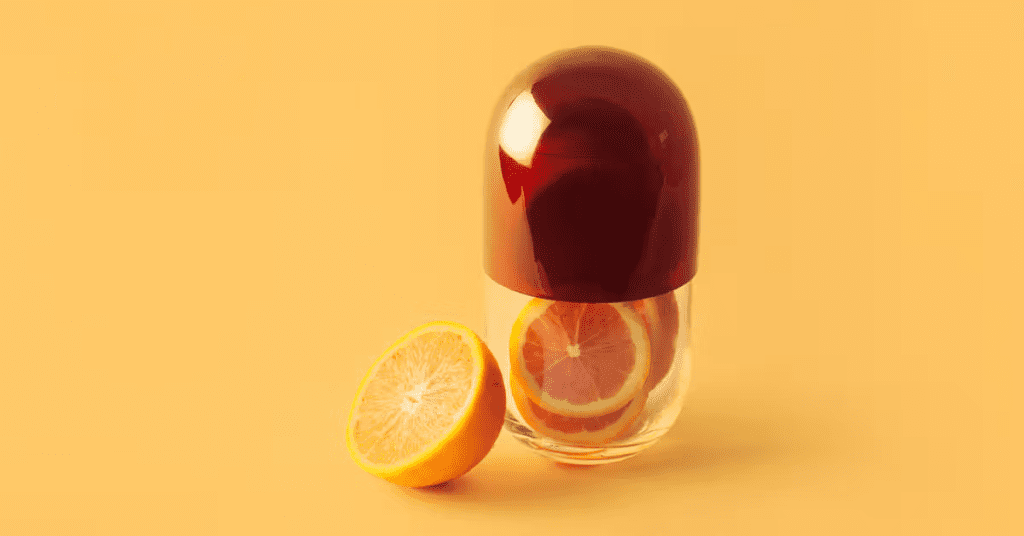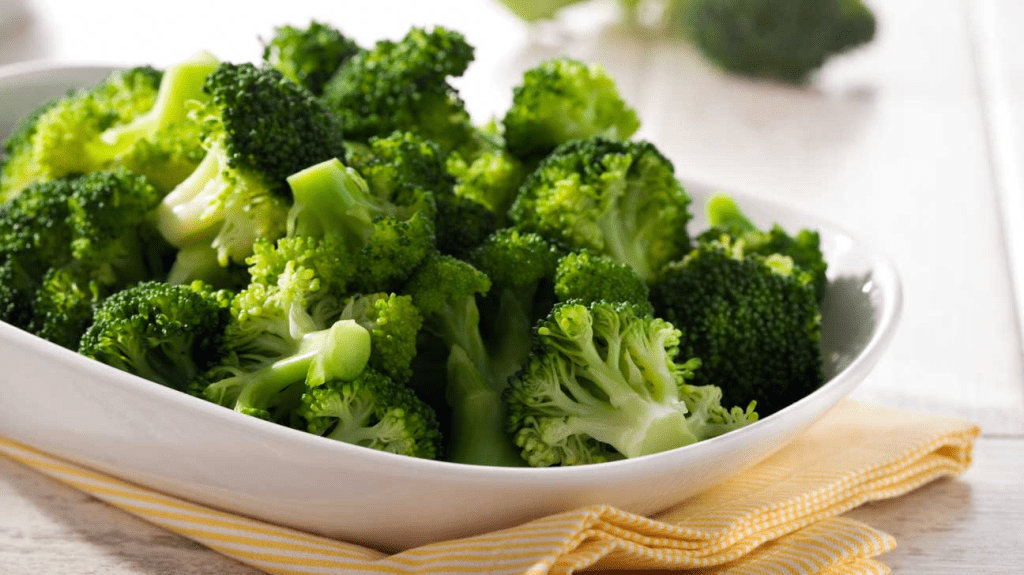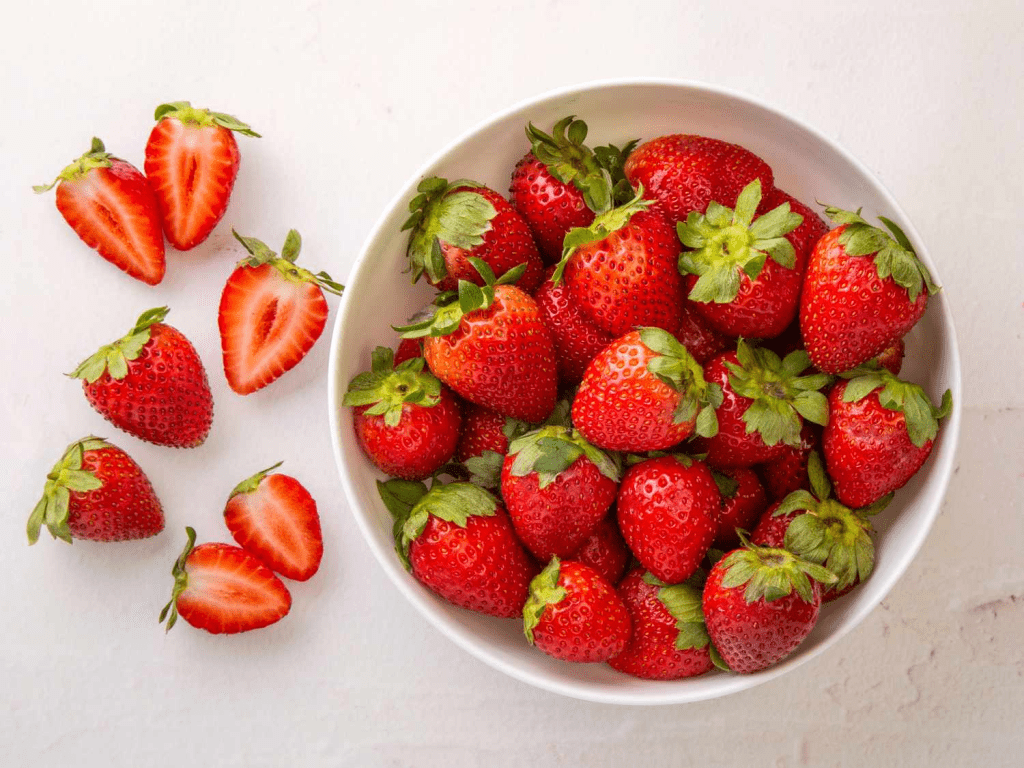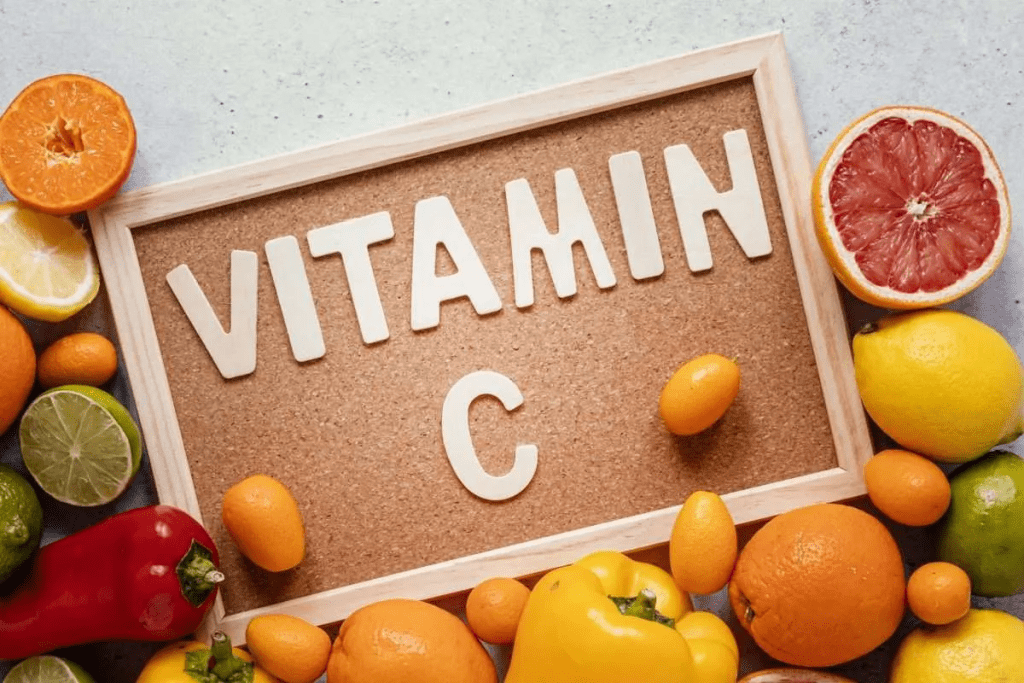Vitamin C is an essential nutrient for keeping our immune systems strong, supporting skin health, and even helping wounds heal. Many people turn to fruits and vegetables to meet their daily Vitamin C needs, but do you know which fruit packs the highest punch? Let’s take a look at the best sources of this powerful antioxidant, how Vitamin C benefits your body, and ways to maximize its intake from natural sources.

Why Is Vitamin C Essential for the Body?
Vitamin C, also known as ascorbic acid, is a water-soluble vitamin that plays a crucial role in various bodily functions. As a potent antioxidant, it helps protect cells from damage caused by free radicals. Here’s a closer look at how this nutrient supports your health:
- Boosts Immune Function: Vitamin C is well-known for strengthening the immune system, helping the body defend itself against infections.
- Supports Skin Health: Vitamin C is essential for collagen production, which helps keep skin firm and aids in wound healing.
- Enhances Iron Absorption: This vitamin assists in the absorption of iron from plant-based foods, which is especially important for those at risk of iron deficiency.
- Protects Against Chronic Diseases: The antioxidant properties of Vitamin C help neutralize free radicals, reducing the risk of diseases like cancer and heart disease.
Unlike some other nutrients, Vitamin C is not stored in the body, so you need to consume it daily to maintain adequate levels.
Top Fruits High in Vitamin C
If you’re wondering which fruit offers the most Vitamin C, you might be surprised. Here are some top contenders that deliver significant amounts of this essential nutrient:
1. Guava – The Vitamin C Powerhouse
Guava tops the list when it comes to Vitamin C content. This tropical fruit packs around 200 mg of Vitamin C per 100 grams, about four times more than oranges. In addition to Vitamin C, guava is rich in fiber, folate, and other beneficial minerals. Its high nutrient density makes guava an excellent choice for overall health.
2. Blackcurrants – A Vitamin C-Rich Berry
Blackcurrants, also known as black currants, provide nearly as much Vitamin C as guava, with around 200 mg per 100 grams. These small, tangy berries are also packed with antioxidants, potassium, and flavonoids, which help reduce inflammation and support urinary tract health.
3. Red Bell Peppers – A Surprising Source of Vitamin C
While technically a vegetable, red bell peppers contain a high amount of Vitamin C—about 80 mg per 100 grams. These vibrant peppers are not only packed with antioxidants but also contain a range of other vitamins, including Vitamin A. They’re ideal for cooking, though some Vitamin C content may decrease when heated.
4. Broccoli – More Than Just a Green Vegetable

Broccoli provides around 89 mg of Vitamin C per 100 grams. This green vegetable is also a great source of fiber, beta-carotene, and B vitamins, including folate. To retain the maximum Vitamin C content, steaming or lightly cooking broccoli is best.
5. Strawberries – Sweet and Packed with Nutrients

Strawberries are a favorite fruit among many and provide about 80 mg of Vitamin C per 100 grams. They are also high in antioxidants and fiber, making them a healthy snack that supports skin health and boosts immunity.
6. Kiwi – A Nutrient-Dense Superfruit
Kiwi contains around 70 mg of Vitamin C per 100 grams, making it another excellent choice. This fuzzy green fruit is also high in fiber, potassium, and omega-3 fatty acids. Freshly picked kiwis are the best for retaining their Vitamin C content.
7. Papaya – A Digestive Aid and Vitamin C Source
Papaya provides around 62 mg of Vitamin C per 100 grams. It’s rich in carotenoids and enzymes, like papain, that aid in digestion and reduce inflammation. This tropical fruit is particularly beneficial for supporting the digestive system.
8. Oranges – A Classic Vitamin C Staple
Oranges are a well-known source of Vitamin C, providing about 50 mg per 100 grams. While not the highest, they are one of the most popular sources of Vitamin C. Eating a whole orange is better than drinking juice, as it offers more fiber and fewer sugars.
9. Cauliflower – An Unexpected Vitamin C Source

White cauliflower may not be the first vegetable that comes to mind, but it contains about 46 mg of Vitamin C per 100 grams. Like broccoli, steaming cauliflower helps preserve its Vitamin C content. It’s also high in B vitamins and contains cancer-fighting properties.
Maximizing Vitamin C Intake: Tips for Getting the Most from Your Diet
While many fruits and vegetables are rich in Vitamin C, there are several ways to make sure you’re getting the most out of them:
- Eat Fresh and Raw When Possible: Vitamin C is sensitive to heat and can degrade when exposed to high temperatures. Eating raw fruits and vegetables preserves their Vitamin C content.
- Store Fruits Properly: Vitamin C can break down over time, so it’s best to store fruits and vegetables in a cool, dark place and consume them shortly after purchasing.
- Choose Whole Fruits Over Juices: While juices are convenient, they often lack fiber and may contain added sugars. Whole fruits offer a more complete nutritional profile and help you feel full longer.
- Incorporate a Variety of Fruits and Vegetables: Different fruits and vegetables contain unique nutrients that support overall health. By eating a range of colors and types, you’ll ensure a broader spectrum of antioxidants and vitamins.
The Recommended Daily Intake of Vitamin C

For adults aged 19 to 64, the daily recommended intake of Vitamin C is around 40 mg. This amount is easily achievable with a diet that includes fruits and vegetables, especially if you enjoy a mix of the high-Vitamin C options listed above. While it’s rare to experience Vitamin C toxicity, excessive intake from supplements (usually above 2000 mg daily) could lead to digestive discomfort.
Conclusion: Enjoy Vitamin C-Rich Fruits for Better Health
Vitamin C is an essential nutrient that supports your immune system, aids in tissue repair, and acts as a powerful antioxidant. From guava and blackcurrants to strawberries and oranges, a wide range of fruits provides a robust source of Vitamin C. By incorporating these fruits into your daily diet, you’ll enjoy the health benefits they offer, keeping your body strong and resilient. With so many delicious options, boosting your Vitamin C intake has never been easier.


